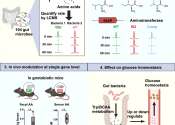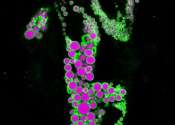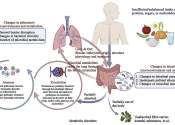Gut microbiota acts like an auxiliary liver, study finds
Microbes in the mammalian gut can significantly change their hosts' amino acid and glucose metabolism, acting almost like an extra liver, according to a new preclinical study by Weill Cornell Medicine investigators.
Apr 23, 2024
0
50









